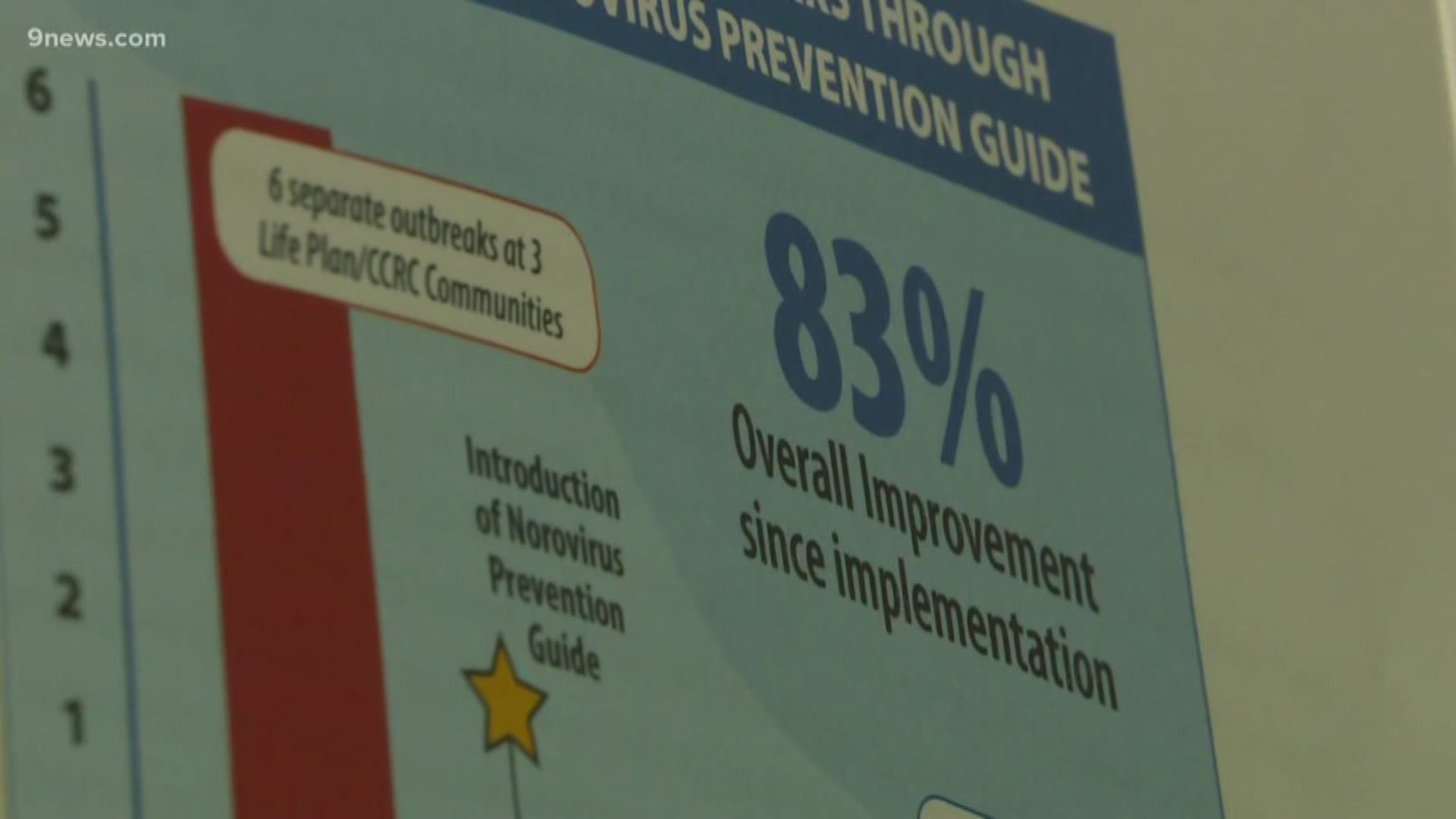DENVER — If you're sick, health officials are urging you not to visit senior care facilities during the outbreak of a new strain of coronavirus.
Elder residents can be more susceptible to severe symptoms of COVID-19, according to the Centers for Disease Control (CDC).
To help limit the likelihood of spreading the virus in senior care facilities, some are canceling activities and limiting visitors.
9NEWS sat down with Pat McBride, a registered nurse and vice president of clinical and compliance for Christian Living Communities, which runs senior care services in nine locations around Colorado.
In 2014, McBride and her team wrote the "Noro-Notebook", a guide to deal with the outbreak of norovirus. She said it's the same protocol for containing COVID-19.
(Editor's note: Responses have been edited for context and clarity.)
9NEWS: How concerned are you about COVID-19?
McBride: Our number one priority here is to make sure our residents are safe and that we take really good care of them. So, yes, we are very concerned about that. We're trying to keep a balance between making sure that we are proactive and we're doing everything we can, but to also maintain a community and personal choice.
Talk about the complications caused by people wanting to visit loved ones in your facilities and the need for senior residents to go out into the public.
McBride: We are making sure that we are washing our hands, that people know the signs and symptoms: not only the residents but their families and the staff. If they are sick or have any temperature or signs and symptoms to refrain from visiting our residents. We're also limiting groups coming in and providing internal life-enrichment activities. We're also looking at all of the opportunities that our seniors have to go out to look at the risks.
Why do you have to be so careful?
McBride: It's very easy to pass. It's airborne. It can live on surfaces for we don't know how long.
Our seniors are at a high risk if they do catch it, having more severe symptoms and potentially death. So, we take this very seriously.
Viruses are not new to us and where we live. People are living in (a) community and so we have norovirus. We have flu. This comes through our communities. But, we have a process where can put a protocol in place to contain those viruses.
Tell us about the process you and your team wrote in 2014.
McBride: This is a 'Noro-notebook'. This is for norovirus, but it pertains to any virus. This is a book that we have in all our communities that clearly defines every person, no matter what their job title is, what they need to do if we do have a virus.
Everyone has a responsibility and timeliness is the most important factor in controlling the virus. Everybody has to jump in and do their job correctly, immediately.
How effective is the plan?
McBride: Knock on wood, but we have not had an outbreak with norovirus (over the last three years), which is another virus like COVID-19, because every single person knows their role and responsibility.
I'm really proud of our team to take every virus seriously.
I'd like to say I think we're ahead of the ballgame because we're three steps ahead. We're always thinking of, if someone is positive, then what do we do?
I feel like we are -- we're ready. We're ready.
SUGGESTED VIDEO | Coronavirus outbreak

